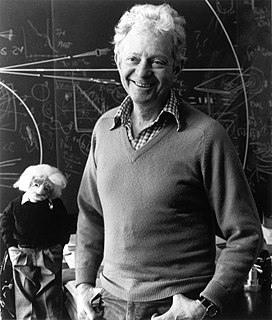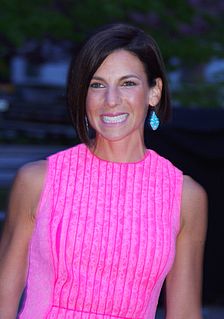A Quote by Thomas Pynchon
Everybody gets told to write about what they know. The trouble with many of us is that at the earlier stages of life we think we know everything- or to put it more usefully, we are often unaware of the scope and structure of our ignorance.
Related Quotes
The corollary of constant change is ignorance. This is not often talked about: we computer experts barely know what we're doing. We're good at fussing and figuring out. We function well in a sea of unknowns. Our experience has only prepared us to deal with confusion. A programmer who denies this is probably lying, or else is densely unaware of himself.
To be honest, I’m more concerned with living my life than writing about my life. I feel like that’s really the main thing I know now that I didn’t know when I was younger — and that is that you have to have a life to write about one. If you’re more worried about having experiences so you can write about them, I think you’re kinda being ridiculous, and I think a lot of young people look at it like that.
Life hands us a lot of hard choices, and other people can help us more than we might realize. We often think we should make important decisions using just our own internal resources. What are the pros and cons? What does my gut tell me? But often we have friends and family who know us in ways we don't know ourselves.
How often do we tell our own life story? How often do we adjust, embellish, make sly cuts? And the longer life goes on, the fewer are those around to challenge our account, to remind us that our life is not our life, merely the story we have told about our life. Told to others, but — mainly — to ourselves.
All kids draw and write poetry and everything, and some of us last until we're about eighteen, but most drop off at about twelve when some guy comes up and says, "You're no good." That's all we get told all our lives. "You haven't got the ability. You're a cobbler." It happened to all of us, but if somebody had told me all my life, "Yeah, you're a great artist," I would have been a more secure person.
When I talk about the pain and hardship of a scientist's life, I'm speaking of more than existential angst. Galileo's work was condemned by the Church; Madame Curie paid with her life, a victim of leukemia wrought by radiation poisoning. Too many of us develop cataracts. None of us gets enough sleep. Most of what we know about the universe we know thanks to a lot of guys (and ladies) who stayed up late at night.
I am very sure that my children thrive on structure and need boundaries. I know my children need to know what time they are going to bed or how many more minutes until they are leaving for school, and so I have imposed a structure that allows them to know where they are all day long, every day in life.
The Democrats have to know in their hearts... I think this is one of the reasons that they're constantly enraged. They have to know that their policies do not work. They do not deliver as promised. They do not create jobs. They do not make people wealthier. They do not grow economies. They do not make sure everybody has health care. Everything they promise, none of it actually happens, and the more of what they implement happens, the worse it gets for everybody. There's a reason they're losing elections.
You're part of the human fabric of experience. You don't have to have cancer to write about cancer. You don't have to have somebody close to you die to understand what death is. Definitely, the more you live, the more experiences fall into your spectrum. As a writer, you must have been told: Write about what you know. But Kafka didn't. Gogol didn't. Did Shakespeare write only what he knew? Our own selves are limitless. And our capacity for empathy is giant.
We have heard of a Society for the Diffusion of Useful Knowledge. It is said that knowledge is power, and the like. Methinks there is equal need of a Society for the Diffusion of Useful Ignorance, what we will call Beautiful Knowledge, a knowledge useful in a higher sense: for what is most of our boasted so-called knowledge but a conceit that we know something, which robs us of the advantage of our actual ignorance? What we call knowledge is often our positive ignorance; ignorance our negative knowledge.
I write about, more or less, everything I can think of, that is I stretch my imagination as far as it'll go. I am kind of stuck in the middle as far as my life goes, and hence my imagination tends to zero in on things which are indeed in the middle. That is, I don't write about the very rich, who I scarcely know, or the very poor who I don't know very well either.







































